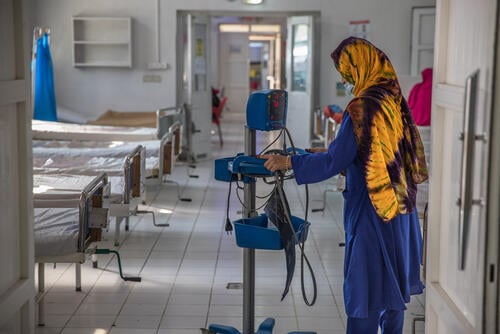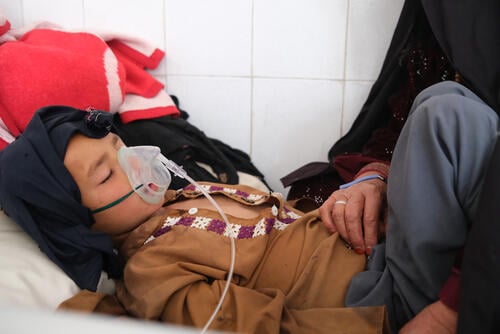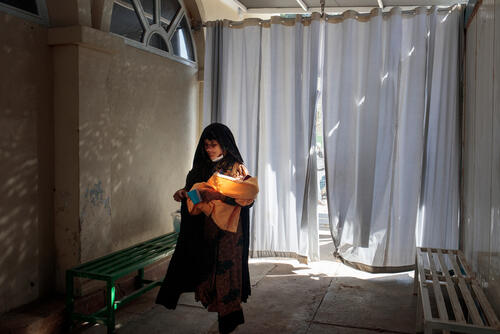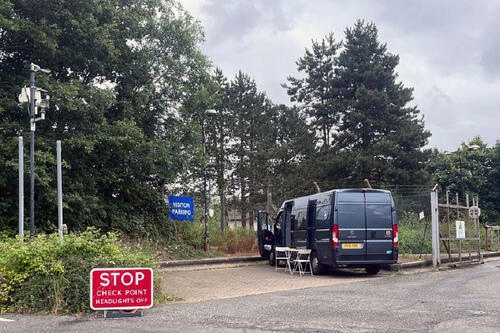Babies continue to be born in Afghanistan, against the backdrop of political upheaval and its consequences on healthcare and the economy. In MSF’s Khost maternity hospital, women remain at the fore, providing much-needed care to new mothers and their babies.
We first opened this specialised maternity hospital in 2012, to provide safe and free maternal and neonatal care to women and their babies in the eastern part of the country. In rural areas and away from the big cities, the majority of women do not have adequate access to essential obstetric care, and this is further exacerbated by the shortage of female midwives and doctors.
Due to our private funding, we are not behest to the political whims of governments. While we continue to provide care in Khost and elsewhere in Afghanistan, we witness critical funding cuts on the Afghan health system along with economic measures taken against the new government that have contributed to a financial crisis.
We heard that a local hospital was performing operations by torchlight. The public health system was barely functioning.Lou Cormack, MSF Khost project coordinator
The suspension of funding to the health system in August meant that even when female midwives and doctors were available, they were deprived of supplies and salaries. Although some funding has been restarted, the Afghan health system is receiving less than before, so there will be no improvements to a system that for years failed to meet people’s needs.
In our maternity in Khost, almost all the medical team is female. It has been described as a “hospital of women, for women”. MSF is one of the largest employers of women in the province, and out of 450 staff at the moment over half are female with jobs that range from doctors and midwives to cleaners and nannies.
Having a team of women is important in this area of Afghanistan to ensure the separation of the sexes, but also so that the patients feel at ease. It’s a place where families know that their wives, mothers and daughters will be well looked after.
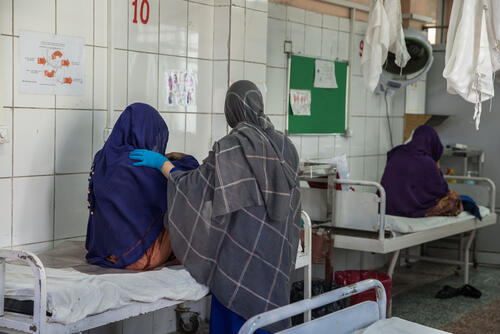
Khost maternity comprises an inpatient department of 60 beds; an 8-bed delivery unit; a 28-bed newborn unit that includes a 10-bed neonatal intensive care unit, two operating theatres and a dedicated kangaroo mother care area (in which mothers are encouraged to make skin-to-skin contact with their babies). We also provide vaccinations for newborn babies, family planning services, and undertake health promotion activities.
Since inception, the maternity has focused on providing healthcare to pregnant ‘complicated cases’ – women who are experiencing some form of birth complication. However, in August, we decided to expand our admission criteria as there was widespread disruption and uncertainty in the country following the change in government.
Markets and transportation systems were closed, people were staying at home and many weren’t sure if health facilities were still open. Although most of these issues are now resolved, a lack of funding has left pregnant women again struggling to give birth safely.
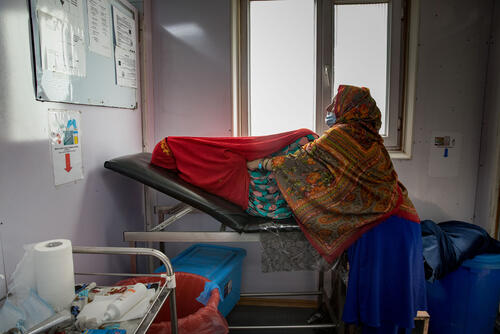
“Very quickly, we saw that the capacity of the health system was deteriorating,” says Lou Cormack, MSF Khost project coordinator. “Public facilities had fewer and fewer drugs, as the supply chain was broken. Staff weren’t getting paid,” she says.
“We even heard that a local hospital was performing operations by torchlight. The public health system, which was already struggling before the suspension of funding, was barely functioning anymore.”
Our team assisted nearly 1,650 deliveries in September, and over 2,000 deliveries in November.
“We’ve had so many patients lately, we had 73 deliveries in one shift, and patient numbers have been increasing over the last few months,” says Aqila, one of MSF’s locally hired midwives. “We know this is happening because public health facilities are closed, and private doctors are very costly.
“When women can’t afford to come for healthcare and give birth at home, they risk bleeding complications or severe high blood pressure disorders related to pregnancy, with no-one there to diagnose it.”

Healthcare workers have done their best to keep providing care to pregnant women despite their facilities being deprived of much-needed funds.
“In the public system, we’ve heard of people pooling their money to buy medical items to keep their facilities open,” says Cormack. “If a woman needs a caesarean-section they all chip in to buy enough fuel so the generator can run during the procedure. This is despite the fact that healthcare workers and other civil servants haven’t been paid for months,” she says.
“We have been providing support to the delivery units in eight local healthcare facilities in rural districts in Khost. Recently we’ve been doing extra maintenance to make sure they keep running, adding a bit of fuel so that they can function at night, and we’ve also supplied kits for normal deliveries that include a few drugs, hygiene items and a hat to keep the baby warm.”
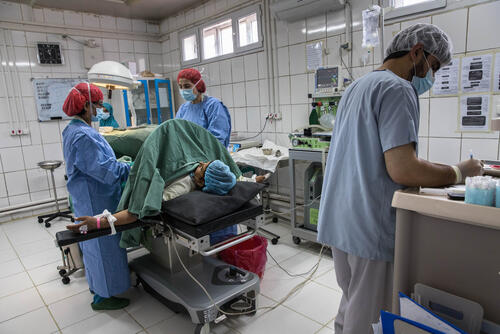
The organisation that runs many of the local health centres in Khost’s districts has now received funding until January. Once these centres are fully functioning and used by the community again, our maternity will revert to its original admission criteria, focusing on pregnant women who are experiencing birth complications. However, what’s going to happen after January remains unclear.
At an uncertain time for Afghanistan, and with people facing huge challenges in accessing healthcare, Aqila says she finds great comfort in helping the women in her community. “I like to help the women who deliver in Khost. The MSF maternity is a safe and great place for them, I delivered my own baby here,” she says.
“I love being a part of it, to help deliver babies and to help mothers. I really have a soft spot for mothers, because they suffer so much.”



